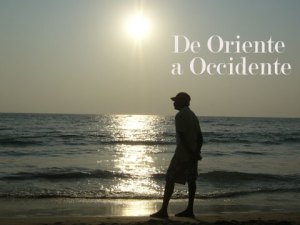The Integral Dynamic Monotheism of Jesus

By Br. John Martin Sahajananda
I would like to suggest now a different kind of monotheism that I believe Jesus modelled or exemplified and which can bring full freedom to each of us if we embrace it. I’m calling it Integral Dynamic Monotheism (IDM) and describe it as follows.
In this monotheism, God alone is. God alone is eternal (sathyam and nithyam). God cannot be put into any human categories. He/She/It is absolutely independent, creative, timeless, peace and love. God is personal, impersonal, and, at the same time, beyond these and all other opposites.
God isn’t an object or form but rather formless, like an infinite space. Our concepts of God are like houses that we build within the space. The infinite space allows the building of houses according to the needs and capacities of human minds, but the space always transcends them.
Our finite human mind can never build an adequate house to fill or accommodate the infinite space. God is the unconditioned space and systems (especially belief systems) are like conditioned space, within walls, as it were. Systems can never satisfy our deepest needs.
Creation (names and forms) is nothing less than a manifestation of God, and as such, is not illusory. It is, however, unreal in the sense that it isn’t eternal and infinite. Creation, like all the forms that constitute it, had/have a beginning and an inevitable end. All forms are temporal.
The universe is essentially one with God, but functionally different, like water and ice, energy and matter etc. Water and ice, as we have seen, are essentially one, but functionally different. Likewise, energy and matter are essentially one, but functionally different. We too, it could be said, are essentially one with God, but functionally different:
Names and forms are like mirrors in which ‘God’ reflects. When the reflection identifies with the names and the forms, it feels that it is finite and no more. However, when it looks to its source, it realizes it’s oneness with God.
We each have the opportunity in this life to evolve or move beyond our present spiritual capacity and experience more deeply our essential nature. The mystery we call ‘God’ undoubtedly has many different aspects for us to explore and experience if we will but drop our narrow concepts and go forward with an open heart and mind.
IDM is Integral: This monotheism I’m drawing attention to here integrates all the systems mentioned above and also other possible systems, but always transcends every system. God or Truth cannot be put into any system. It’s essentially non-dualistic but functionally qualified non-dualistic and dualistic.
This monotheism doesn’t exclude any mode of spirituality, but embraces all spiritual paths that help us to grow in our relationship with God, the Source of all, and with one another. The spiritual paths of wisdom (jnana), devotion (bhakthi) and action (karma) aren’t seen as exclusive, but mutually complementary.
IDM is Dynamic: The relationship between us and God isn’t static but dynamic. It’s a process of ascending and descending (or vice versa). It is like climbing a hill and coming down again (or vice versa).
We could, for instance, grow in our relationship with God, from a dualistic consciousness to a qualified non-dualistic consciousness and from there to a non-dual consciousness. Then we could move in consciousness from a non-dual awareness to a qualified non-dual awareness and from there to dualistic awareness again, and thereafter, fluctuate from one consciousness to another as our life-experience unfolded.
One can live from these three types of consciousness at the same time without any contradiction. It’s an essential unity of functional duality and non-duality. A useful metaphor could be a tree. The tree is essentially one, but functionally it has different parts such as leaves, branches, trunk and roots.
Br. John Martin Sahajananda
Continued next week
.
Gracias por su visita
Para volver a la página de inicio haga clik en la siguiente imagen:

Read Full Post »
























